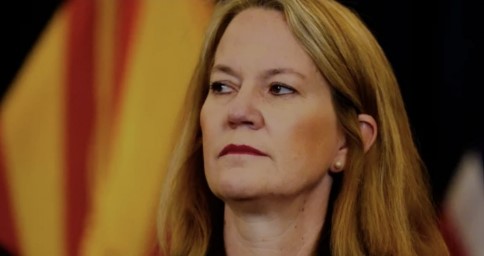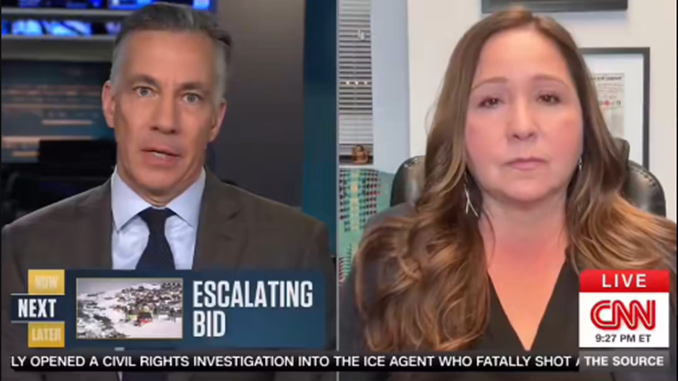
by Staff Reporter | Jan 29, 2026 | News
By Staff Reporter |
The Tucson Pride organization will be shutting down after nearly 50 years of existence.
The organization maintained the third-oldest Pride entity in the country, and the first and oldest one in Arizona.
The announcement comes exactly a month before the organization was slated to have its annual pride festival.
The Tucson Pride Board of Directors said in an announcement that it would refund all funds received for this year’s festival within 30 to 90 days.
“This decision was not made lightly. We recognize the deep importance Tucson Pride has held in our community since 1977, serving as a space of visibility, advocacy, celebration, and resilience for nearly five decades,” stated the organization on its Facebook page and website. “We are profoundly grateful to every volunteer, sponsor, artist, activist, and community member who has supported Tucson Pride throughout its history.”
Tucson Pride was founded following the murder of Richard Heakin in 1976 outside Stonewall Tavern.
The organization’s nonprofit status (Tucson Lesbian and Gay Alliance) was jeopardized in the recent past for failing to file on time. The IRS automatically revoked their nonprofit status in May 2024 for failing to file their tax returns for three consecutive years.
Tucson Pride said one of their prior board members “missed” the 2021 and 2022 tax filings. They did not name the prior board member allegedly responsible for the missing filings.
According to their latest available filing from 2020, the board of directors at the time included Rocque Perez.
Perez is a state senate candidate and a formerly appointed member of the Tucson City Council. AZ Free News reported on the recent discovery of Perez’s deletion of his pornographic and violent social media accounts.
Other directors per that last 2020 filing included Samantha Cloud (president), Jeff Myers-Fulgham (vice president), Stephen R. Myers-Fulgham (treasurer), and Matthew Taylor (secretary).
Tax filings revealed the Tucson Lesbian and Gay Alliance had a significant dropoff in revenue between its 2019 and 2020 filings. The 2020 reported revenue ($18,400) was $28,800 lower than its lowest revenue over the past decade of available reports, dating back to 2010.
Prior to 2020, the organization had reported a steady rise in revenue from 2015 to 2019, having a reported revenue high of $171,000 before the 2020 decline.
The organization had a steady rise in revenue from 2016 to 2019.
Last October, Tucson Pride leadership delayed its Pride festival due to financial problems and political pressures. The organization reported having over $50,000 in debt following a slash to ticket sales and donations after 2024.
“Nationwide, LGBTQIA+ nonprofits have seen donations and corporate sponsorships decline due to shifting politics and increased hostility toward queer causes,” said the board. “Tucson Pride has felt this squeeze firsthand, making local fundraising more challenging than in past years.”
A 2024 financial overview provided by Tucson Pride reflected that gross earnings totaled over $110,000, but their expenses totaled nearly $156,000: $37,000 on entertainment; $7,000 on food, beverage, and ice; $50,000 on infrastructure; $5,000 on logistics; $2,000 on marketing; $7,000 on permitting; $27,000 on public safety; $5,000 on tech; $1,000 on a Tihan donation; and $13,000 on supplies.
Cash sponsorships totaled just over $54,000, and festival sales totaled $63,000.
AZ Free News is your #1 source for Arizona news and politics. You can send us news tips using this link.

by Staff Reporter | Jan 28, 2026 | News
By Staff Reporter |
The man arrested for a deadly shooting at a Phoenix gas station was released from a weapons charge five years ago.
This occurred under the watch of Attorney General Kris Mayes’ former division chief Vanessa Hickman when she was city attorney for the city of Peoria. Hickman worked nearly three years in Mayes’ office before her arrest last November by federal agents on felony charges of mail theft.
Hickman was accused of stealing and selling several pieces out of $40,000 worth of fine jewelry misdelivered to her in the mail.
Under Hickman in September 2020, city of Peoria prosecutors dismissed a charge against Deondre Stephen Franklin for carrying a deadly weapon while under 21 years old. Franklin, now 25, also faced a charge of underage drinking at the time in the Peoria Municipal Court.
Court records show the court allowed Franklin to undergo substance use evaluation and education rather than sentencing him to jail time. Like Franklin, court records revealed Hickman underwent an outpatient substance abuse program while working for Mayes. Hickman had a DUI charge in 2003.
Divorce records allege that on multiple occasions Hickman drove drunk and would pour hard liquor into her coffee in the mornings.
The weapons charge Franklin faced was a class three misdemeanor, which could have resulted in up to 30 days in jail, up to $500 in fines, and up to a year of probation.
Hickman stepped down following the 2022 election of Mayor Jason Beck. Hickman joined the city in 2018.
Mayes hired Hickman despite warnings from the city of Peoria about other allegations against Hickman relating to fraud, conversion, and breach of fiduciary duty. The city sued Hickman following her departure over a disputed severance payment.
It appears Hickman’s direction for prosecuting criminals in Peoria has now resulted in the loss of at least one innocent life.
Last Friday, Franklin shot 52-year-old Danny Lyn Kaster at a QuikTrip gas station. Franklin reportedly shot Kaster after Franklin attempted to cut ahead in a line for the restroom.
Phoenix police arrested Franklin on Sunday. He faces a second-degree murder charge and a bond of $1 million.
An update from one of Kaster’s friends, Jasen Szczepaniak, relayed what Kaster’s sister said in a Facebook post that Kaster was shot at least four times.
“[Franklin] is a 24-25yr old punk ass wannabe gangster that had a gun,” said Szczepaniak. “Danny said ‘line is back there’ gunman pulled out [a] gun [and] shot him in face, chest, leg as of now 4 shots but autopsy may show more. Deondre Franklin is his name[;] he shot & killed Danny over a bathroom being told to go to [the] back of a line. I’m so grateful he was in custody swiftly, I will make sure the courts/judges know how worthy your life was & will make sure he gets [the] maximum sentence. Doesn’t bring you back doesn’t help make any sense of this but I’m happy he was caught.”
Other friends noted that Kaster was a “dear friend” known for his acts of generosity and kindness.
Kaster’s loved ones recounted that his love for family extended to the animals in his life — especially including his dog, Max. Kaster’s sister reportedly plans to take care of his dog.
A GoFundMe for Kaster’s family is collecting funds to handle funeral expenses.
Although Franklin is in custody, the shooting remains under investigation. Those who may have more information about the shooting should call Silent Witness at (480) 948-6377.
AZ Free News is your #1 source for Arizona news and politics. You can send us news tips using this link.

by Staff Reporter | Jan 27, 2026 | News
By Staff Reporter |
Rep. Adelita Grijalva praised the invasion of a church service by anti-ICE protesters.
The protesters targeted the Cities Church in St. Paul, Minnesota, during a Sunday worship service after they learned one of the pastors, David Easterwood, was ICE’s acting field office director in Minnesota. Easterwood was not present for that service.
During the invasion of the church, Nekima Levy Armstrong claimed Christians couldn’t support immigration enforcement efforts. Armstrong’s activist group, Racial Justice Network, organized the protest.
“Someone who claims to worship God teaching people in this church about God is out there overseeing ICE agents,” said Armstrong.
Church leaders were witnessed on camera asking the protesters to leave, but the protesters refused.
Federal authorities arrested three of the activists for allegedly orchestrating the church invasion: Armstrong, Chauntyll Louisa Allen, and William Kelly. Their charges alleged violations of the FACE Act.
The Freedom to Access Clinic Entrances Act of 1994 (FACE Act) criminalizes the intimidation or interference of those seeking to exercise their First Amendment right of religious freedom at a place of religious worship.
Department of Homeland Security (DHS) Secretary Kristi Noem dubbed the invasion the “Church Riots.”
“Religious freedom is the bedrock of the United States – there is no first amendment right to obstruct someone from practicing their religion,” said Noem.
Attorney General Pam Bondi announced that the Trump administration won’t tolerate disruptions of Christians’ freedom to worship.
“Attacks against law enforcement and the intimidation of Christians are being met with the full force of federal law,” said Bondi.
Grijalva defended the church invasion. She told CNN that ICE agents deserved to be harassed. Grijalva claimed illegal immigrants undergoing deportation proceedings were being “kidnapped” and implied they had a right to be in this country.
“[T]his federal agent now knows what it’s like to have his daily life and privacy interrupted. This is a daily occurrence for our immigrant communities – being followed and kidnapped outside of schools, churches, and hospitals,” said Grijalva. “The difference is this agent got to go home at the end of the day, where many families have no idea where their loved ones are when they’ve been kidnaped off the streets.”
Grijalva also claimed ICE had deported U.S. citizens as well as veterans.
ICE has deported minors born in the U.S. to illegal immigrant parents.
DHS advised that they allow the parents to either be removed with their children, or have their children placed with another individual: this choice is left up to the parents. DHS under Trump has consistently maintained that policy.
Deportations of veterans occur in cases where those noncitizens have committed certain crimes (per the Illegal Immigration Reform and Immigration Responsibility Act of 1996) or failed to follow through with the required citizenship proceedings.
Grijalva also praised the high school students who played hooky to protest deportations, characterizing the present immigration enforcement as an “overreach.”
Last month, the congresswoman claimed she was shoved and pepper sprayed by ICE agents at a protest without provocation. DHS responded with an accusation that Grijalva joined an anti-ICE mob attempting to obstruct an immigration raid. DHS later stated that two law enforcement officers were “seriously injured” by the mob that Grijalva joined.
AZ Free News is your #1 source for Arizona news and politics. You can send us news tips using this link.

by Staff Reporter | Jan 26, 2026 | News
By Staff Reporter |
An OnlyFans influencer based out of Phoenix with ties to the cartel has gone missing in Mexico.
20-year-old Nicole Pardo Molina was apparently kidnapped while in Culiacan, Sinaloa, Mexico last week. Cartels operate heavily out of Sinaloa.
Video from Pardo Molina’s Tesla Cybertruck showed two armed men approach and force her into another vehicle, a stolen white Toyota Corolla, at gunpoint. Pardo Molina’s boutique sold merchandise bearing depictions of cartel leader Joaquin “El Chapo” Guzman.
Pardo Molina drove a distinctive purple Tesla that stood out in Culiacan. Pardo Molina split her time between Phoenix and the area of Sinaloa where her father was reportedly from. Pardo Molina lived in a more affluent neighborhood within Culiacan. Blog Del Narco reported Pardo Molina was originally from an area linked to a certain faction of the Sinaloa Cartel, La Mayiza. Pardo Molina’s apparent cartel support aligned with the enemies of La Mayiza: Los Chapitos, the other Sinaloan Cartel faction.
Mexican authorities told El Pais that their initial investigations revealed at least three men were involved. The kidnappers allegedly threw tire spikes at Pardo Molina’s vehicle to strand her and force her into their vehicle.
Users online have speculated whether the kidnapping was staged. Others have argued the kidnapping was real, and that La Mayiza were behind it.
An anonymous source told AZ Family that Pardo Molina once operated a boutique in Phoenix, but closed it down after the windows were broken.
Pardo Molina also operated an online storefront, “Nicholette Shop,” though the site appears to have been taken down.
A “narcocorrido” band popular in Mexico, Grupo Arriesgado, wrote a song about Pardo Molina in 2022, “La Muchacha del Salado,” after she commissioned it for her 16th birthday. Pardo Molina paid $5,000 for the song.
The song, which amassed nearly 30 million views and over 100,000 likes, gave her the initial boost to the influencer platform she has maintained.
Narcocorrido translates to “drug ballad”; these songs focus on drug trafficking and real-world events which disclose cartel crime. Grupo Arriesgado has been associated with the Sinaloa Cartel. Back in 2023, the band was run out of Tijuana by a warring cartel, the New Generation Jalisco Cartel.
Pardo Molina launched businesses after dropping out of school at 16 during the COVID-19 pandemic.
The song implies Pardo Molina had involvement in cartel activities, referring to her involvement in “the business” from a young age.
Another Spanish narcocorrido artist, Manuel Rodriguez, released a song about Pardo Molina last year.
Another Mexican social media influencer, Atziri Valeria Marquez, was murdered last May during a TikTok live stream. Valeria Marquez was shot while on camera in her salon in Zapopan, Jalisco, Mexico.
Last June, U.S. authorities named Marquez’s former romantic partner at the time, Ricardo Ruiz Velasco, a ranking member of the New Generation Jalisco Cartel, as a suspect in her murder. The Treasury Department made their announcement as part of sanctions against Ruiz Velasco and four other New Generation Jalisco Cartel members.
AZ Free News is your #1 source for Arizona news and politics. You can send us news tips using this link.

by Staff Reporter | Jan 25, 2026 | News
By Staff Reporter |
An owner of a Tucson beauty spa said she has plans to poison ICE agents.
Tucson spa owner Helen Barayeva posted a video to her since-deleted spa business account on TikTok describing her goal to give food poisoning to ICE agents. Barayeva also indicated her intention to come up with other “biological weapon” tactics to employ against immigration enforcement.
“I know what we can do. We can figure out where they’re giving their food, right? The ICE agents? And we can at least give them food poisoning. That’s easy to do,” said Barayeva. “All you have to do is not wash your hands when you’re prepping their food. I mean, how easy is that, right? That is a biological weapon. Okay, I’m going to come up with more.”
Barayeva owned Refreshed Looks Aesthetics, at the time housed inside the Les Cheveux Salon and Boutique.
Barayeva, a former dental hygienist, has also used her Facebook business page to air some of her political views on President Donald Trump, though her “biological weapon” video from TikTok was not on that page as of this report.
Since Barayeva’s post received criticisms online, Barayeva has deleted her Instagram, X, TikTok, and Threads accounts. Her Facebook page remains active as of this report.
The available archived posts from Barayeva indicate long-standing support for progressive politics.
“Joy [Behar], I absolutely love and adore you. Keep speaking the truth,” said Barayeva in one X (then Twitter) post from 2021. “God bless you and give you many great years ahead. I watch the View every day and love your perspective.”
Multiple individuals on social media indicated that they reported Barayeva to authorities for her threats of violence.
This month, the Department of Homeland Security reported an 8,000 percent increase in death threats against federal law enforcement and their families, notably on the deep web. DHS also reported over 1,300 percent increase in assaults and 3,200 percent increase in vehicular attacks.
The agency says Democratic leadership is to blame for encouraging political violence among their followers.
“We’re having our ICE lawyers stalked and being followed on their way home,” said Tricia McLaughlin, DHS Assistant Secretary for Public Affairs, in an interview with Fox News. “I think it’s about time the left looks in the mirror and says ‘enough is enough.’ And they have to put public safety and law enforcement safety ahead of their own political gain.”
Arizona’s Democratic congressional leaders are working to stop the expanded immigration enforcement efforts.
Democratic Sens. Mark Kelly and Ruben Gallego introduced a bill last week to remove ICE agents’ ability to apply use of force. Their press release on the bill cited the shooting of Renee Good, an anti-ICE activist who sustained a fatal gunshot wound earlier this month when she attempted to drive forward into an ICE agent during a protest in Minnesota.
Tucson Mayor Regina Romero depicted ICE agents as unnecessary agents of violence.
“No community should be subjected to fear, intimidation or violence in the name of immigration enforcement,” said Romero. “The unchecked violence, masked agents, and excessive use of force is creating fear and chaos in our communities.”
In a video posted earlier this week to Instagram, Romero advocated for protesters to abstain from violence.
“I ask that you be peaceful and nonviolent in your protests. They’re so much more powerful to make your point,” said Romero. “Stay safe and please stay nonviolent.”
Phoenix City Councilman Kevin Robinson accused ICE of undermining trust in law enforcement.
“Clear standards and transparency help ensure enforcement is conducted responsibly and with respect for the people it affects,” said Robinson.
In his statement on the bill, Sen. Kelly also came to the defense of ICE protesters, even those impeding immigration enforcement operations. Kelly claimed the present budget for ICE is excessive because it exceeds that of the Marine Corps.
Rep. Eli Crane said Kelly was wrong to defend the protesters and criticize the ICE budget. The congressman said ICE’s increased budget and show of force were necessary to bring the illegal immigration crisis to heel.
“Why, Senator [Kelly], does the budget of ICE have to be larger than the U.S. Marine Corps? Oh, that’s because you and President Joe Biden and all the other Democrats let 15 to 20 million illegal aliens into this country, and now the American people after they saw the ramifications of that gave President Trump and Republicans a mandate to fix it,” said Rep. Crane.
AZ Free News is your #1 source for Arizona news and politics. You can send us news tips using this link.





